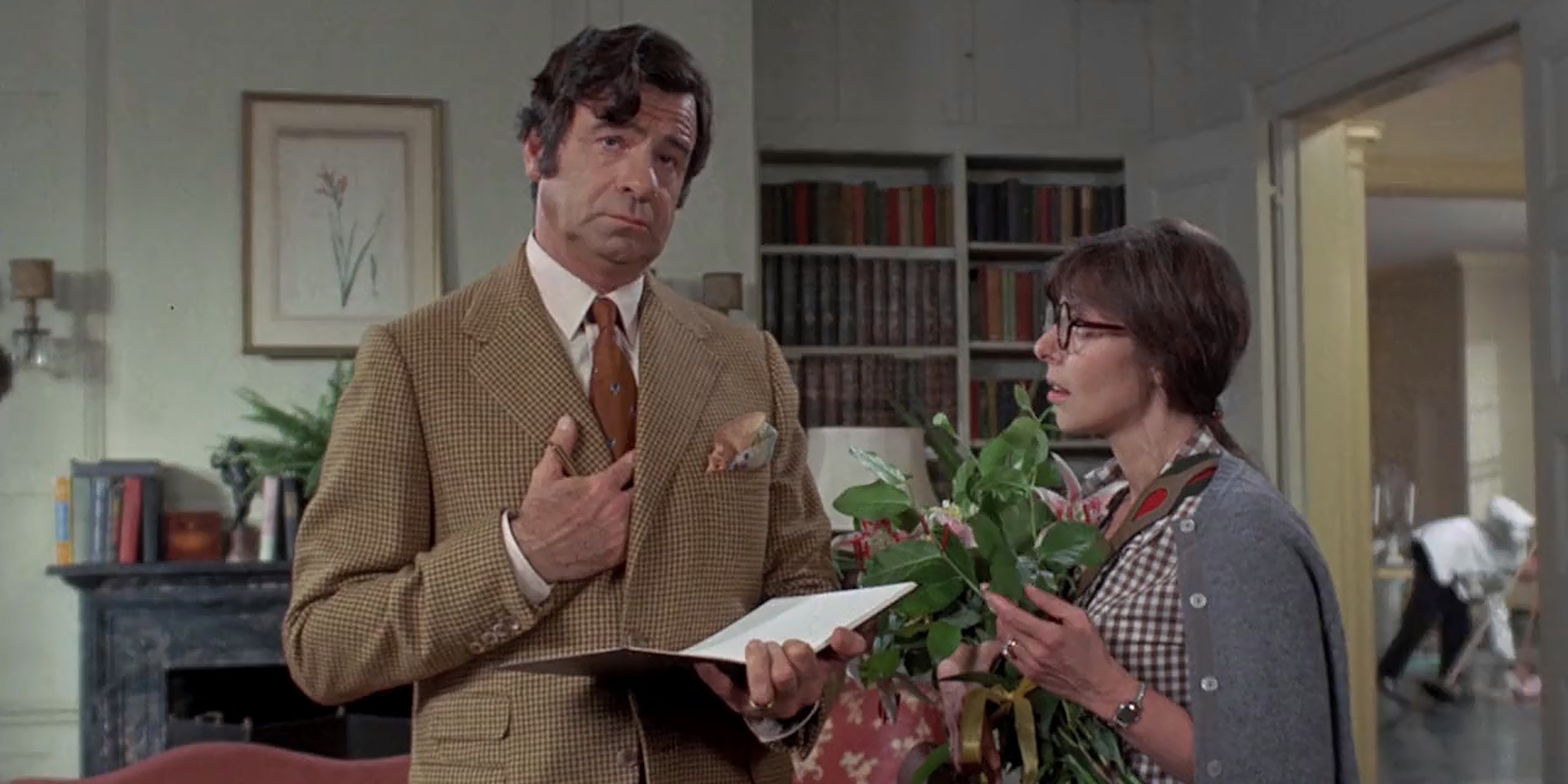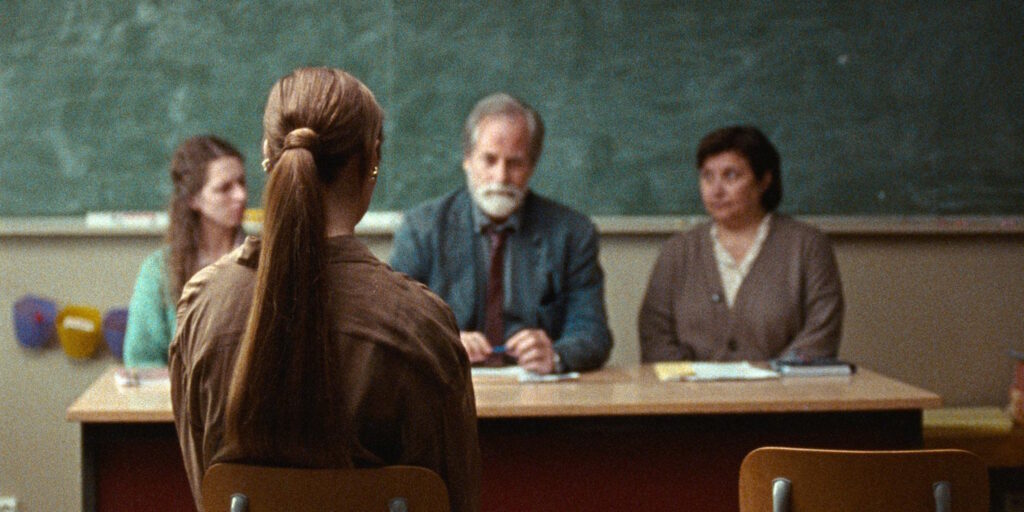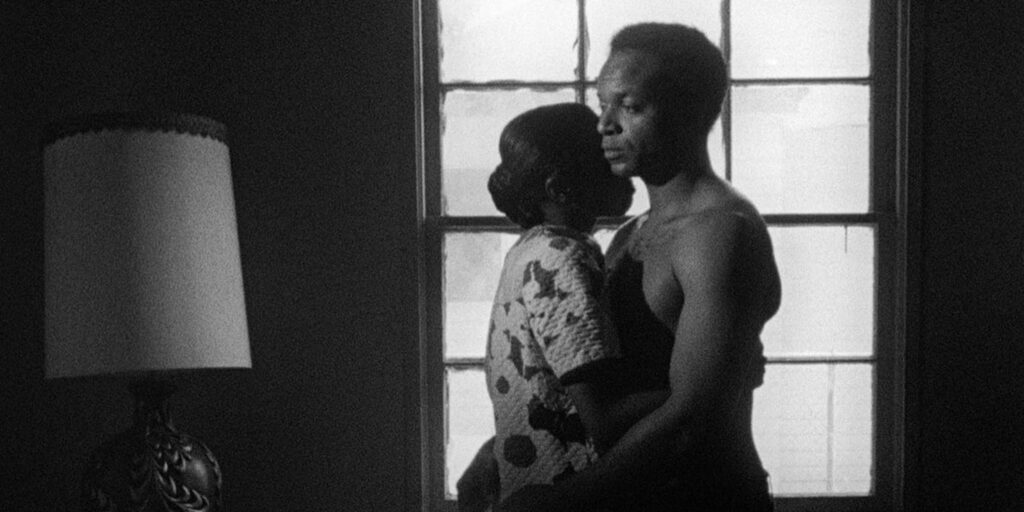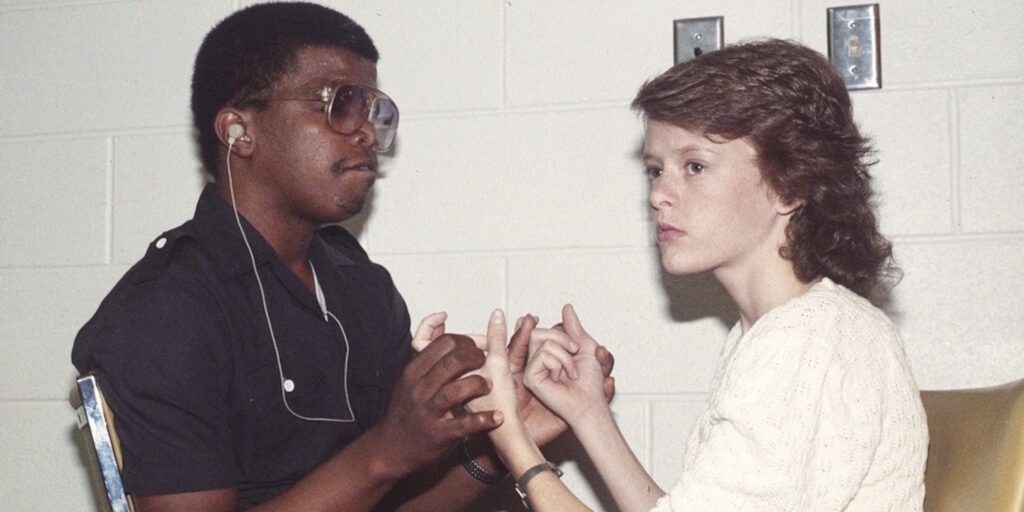[Note: This essay was originally published at Cinema St. Louis’ The Lens.]
Poor, poor Henry Graham (Walter Matthau). As evidenced by the Ferrari he uses to commute around New York City, the newfound bankruptcy he treats as a terminal diagnosis, or the wealthy bride he speaks of like a promising job opportunity, he just doesn’t seem to get it. He just doesn’t seem to understand how the world works for 99% of Americans. Love, budgeting, public transportation … these might as well be foreign concepts to him, and not the trendy kinds like the French food or Italian artwork that make him appear higher-class than he actually is. His poverty is twofold: He has no more money in his once-sizable bank account, and he was oblivious to the reality that his cash flow would dry up eventually if he kept living beyond his means. If going broke doesn’t register in his mind, what makes him think the ins and outs of murder — er, marriage — will?
Even 50 years after its premiere, Elaine May’s A New Leaf has a central conceit that still manages to feel amusingly macabre. Here we have a male lead in a screwball comedy who would rather defraud and outright murder a woman after bleeding her for all she’s worth than give up his life of luxury or, God forbid, surrender to the institution of legitimate marriage. The basic setup for A New Leaf comes from the short story “The Green Heart” by Jack Ritchie, who, unsurprisingly, was a favorite of Alfred Hitchcock’s — 123 of his 500-plus short stories were published in Alfred Hitchcock’s Mystery Magazine between 1959 and 1982 — but the acerbic bite is all May’s. Even with its singular tone and feel, Elaine May insists the film is nothing more than adequate. This indifference on her part is almost certainly rooted in the mistreatment she was subjected to by Paramount during the production.
When asked by Dick Lemon (New York Times reporter from the 1970s, not Buck Henry’s character from 30 Rock [2006-2013]) whether she felt she had broken any new ground with A New Leaf, May said “No, none. But I tripped over a lot of old ground.” A performer herself, May ended up being cast as the female lead in her own film after Paramount’s downright baffling interference with A New Leaf’s production. That meddling led to a promised six-figure payday she never received, a final cut that was inevitably taken away from her, and a lack of say in the casting process that led to her taking part. It’s the kind of inexplicable studio tampering even the most casual moviegoers have heard about since the origin of the studio system itself, and such meddling continues to happen again and again to this day.
Her continued (and completely reasonable) dissatisfaction with the studio’s cut notwithstanding, it’s hard to deny that May and Matthau are positively incomparable in A New Leaf. Once Henrietta Lowell (May) makes her first on-screen appearance, sequestered to a corner in a room full of wealthy elites — including Dr. and Mrs. Daryl Hitler, of no relation to the Boston Hitlers — it’s clear that she’s about to deliver a klutzy, quirky performance destined to redefine what a comedic lead in a post-Hays Code Hollywood could be (and a year before Barbra Streisand in What’s Up, Doc? [1972] to boot). With mere days left for Henry to find an heiress, marry her, kill her, and inherit all her money so he can repay his uncle (James Coco), his palpable desperation is like a magnet drawn right to Henrietta’s haplessness.
Matthau’s caustic wit combined with May’s delightfully ditzy humor makes for a much better marriage than whatever twisted arrangement Henry and Henrietta have going on. Naturally, as one half of former improvisational comedy duo Nichols and May, comedic pairings are sort of May’s calling card. As such, it’s no wonder she does an exceptional job crafting up all sorts of hilarious havoc for the two to wreak. Just look at the subsequent couplings she explored in her far-too-short directing career: Lenny (Charles Grodin) and Kelly (Cybill Shepherd) in The Heartbreak Kid (1972), Peter Falk and John Cassavettes as the titular Mikey and Nicky (1976), respectively, and Chuck (Dustin Hoffman) and Lyle (Warren Beatty) in the unfairly maligned Ishtar (1987). Over and over again, May proved herself to be the patron saint of dysfunctional duos. She’d already made her point on the stage with Nichols, and A New Leaf serves as her proof of concept for the big screen.
While the sardonic, straight-faced slapstick comedy that permeates A New Leaf is undoubtedly years ahead of its time, perhaps what is most prescient about Elaine May’s directorial debut is the relationship between Henry and Henrietta’s staff. Not literally, but metaphorically. Immediately following his wedding to Henrietta, he comes in and begins cracking the whip, firing staff, and taking control of her finances for his own personal gain. It’s not that different from the relationship May would have with the studio system for the duration of her Hollywood career. Though she portrays her on-screen, May is not Henrietta. Unlike her character, May wasn’t afraid to fight back against studio interference, even if, in the end, Paramount prevailed. May’s supposed 180-minute cut is believed to have vanished, and the studio-cut version that May failed to have her name removed from is the one audiences know and love today. Yet, despite her discontent with A New Leaf, May’s work — to tweak a quote from Henry’s valet, Harold (George Rose) — effectively preserved a subgenre of comedy that was dead before this film was born.




